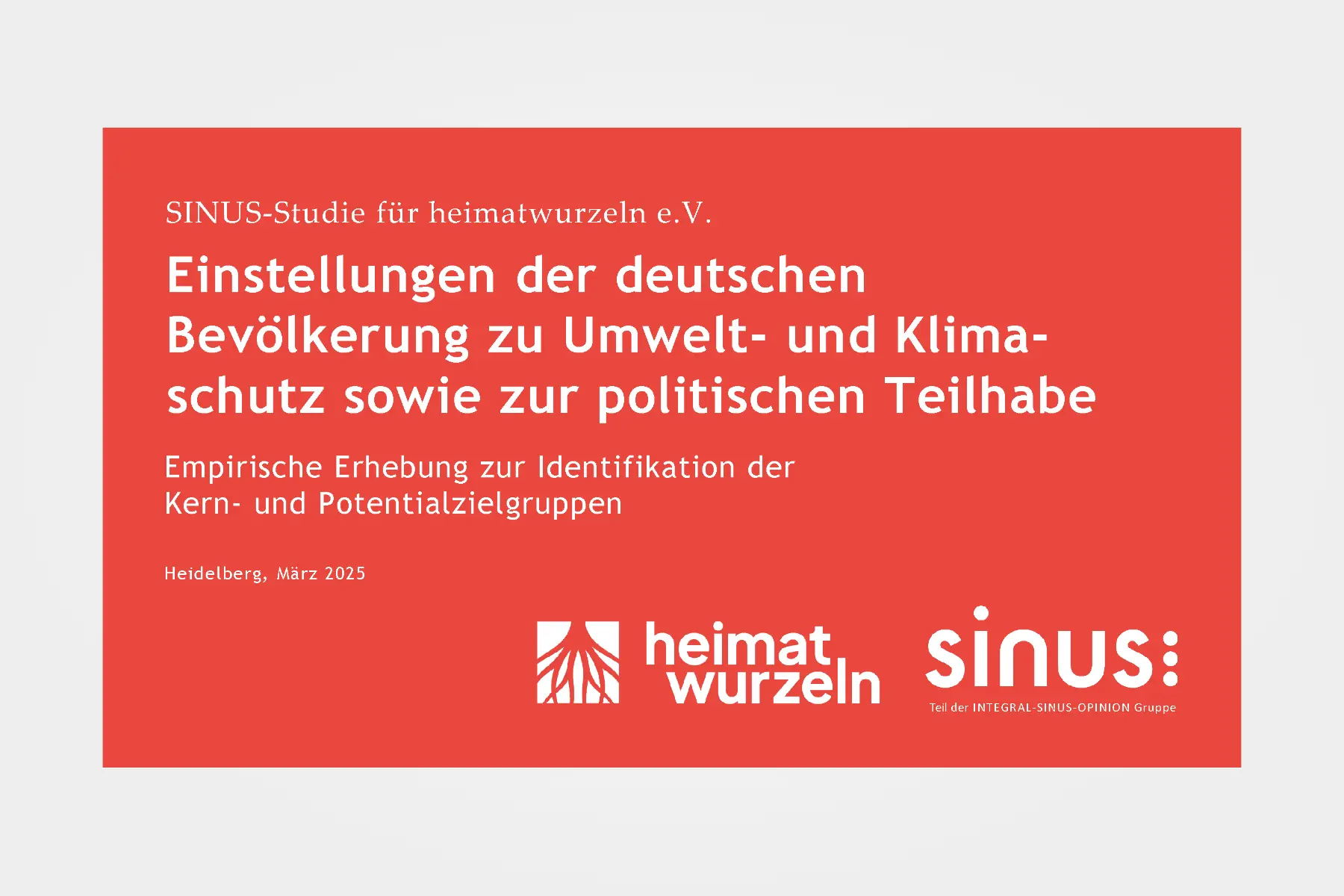
Attitudes towards environmental and climate protection in Germany
On behalf of heimatwurzeln e.V., SINUS-Institut conducted a representative study on the attitudes of Germans towards environmental and climate protection and political participation.
Publications on our studies appear regularly. This illustrates the high social relevance of SINUS research.
Would you like to know more? Don’t hesitate to contact us.

On behalf of heimatwurzeln e.V., SINUS-Institut conducted a representative study on the attitudes of Germans towards environmental and climate protection and political participation.
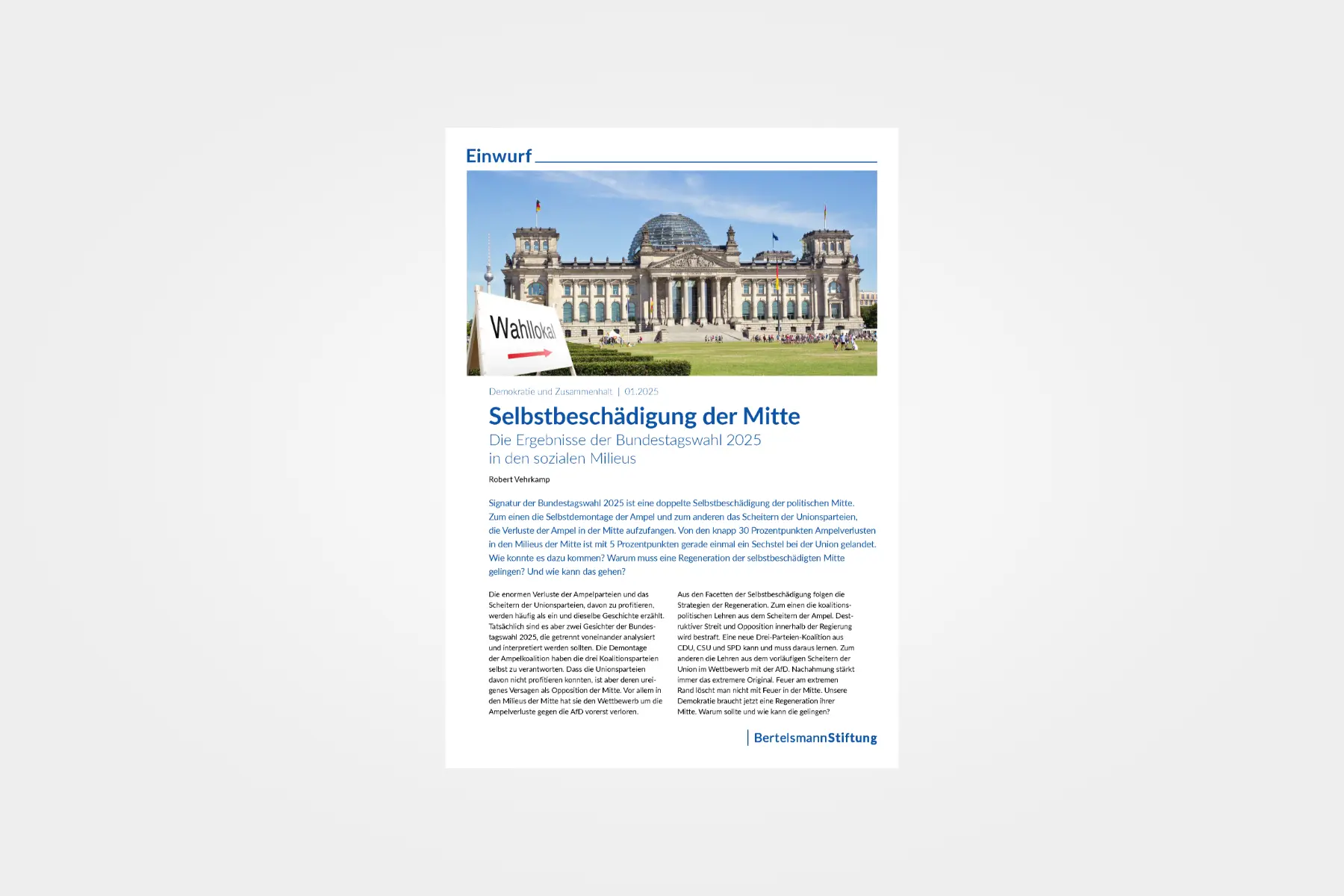
Analysis by Bertelsmann Stiftung: The results of the 2025 Bundestag election in the Sinus-Milieus show political shifts and central lines of conflict in society - and what this means for the German party system.
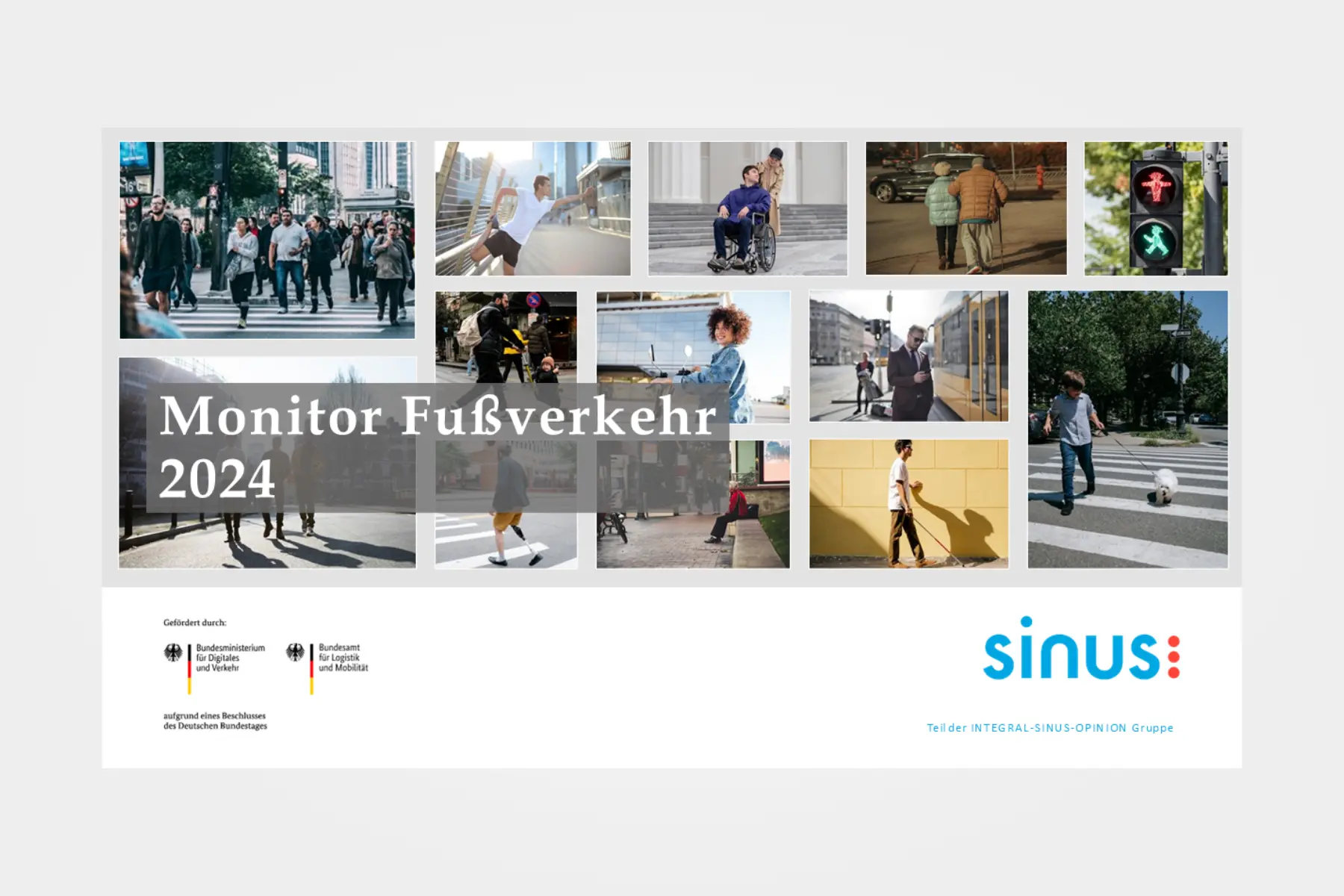
The “Monitor Pedestrian Traffic 2024” study provides the first well-founded empirical basis on the mood and behavior of the population in Germany with regard to mobility on foot.
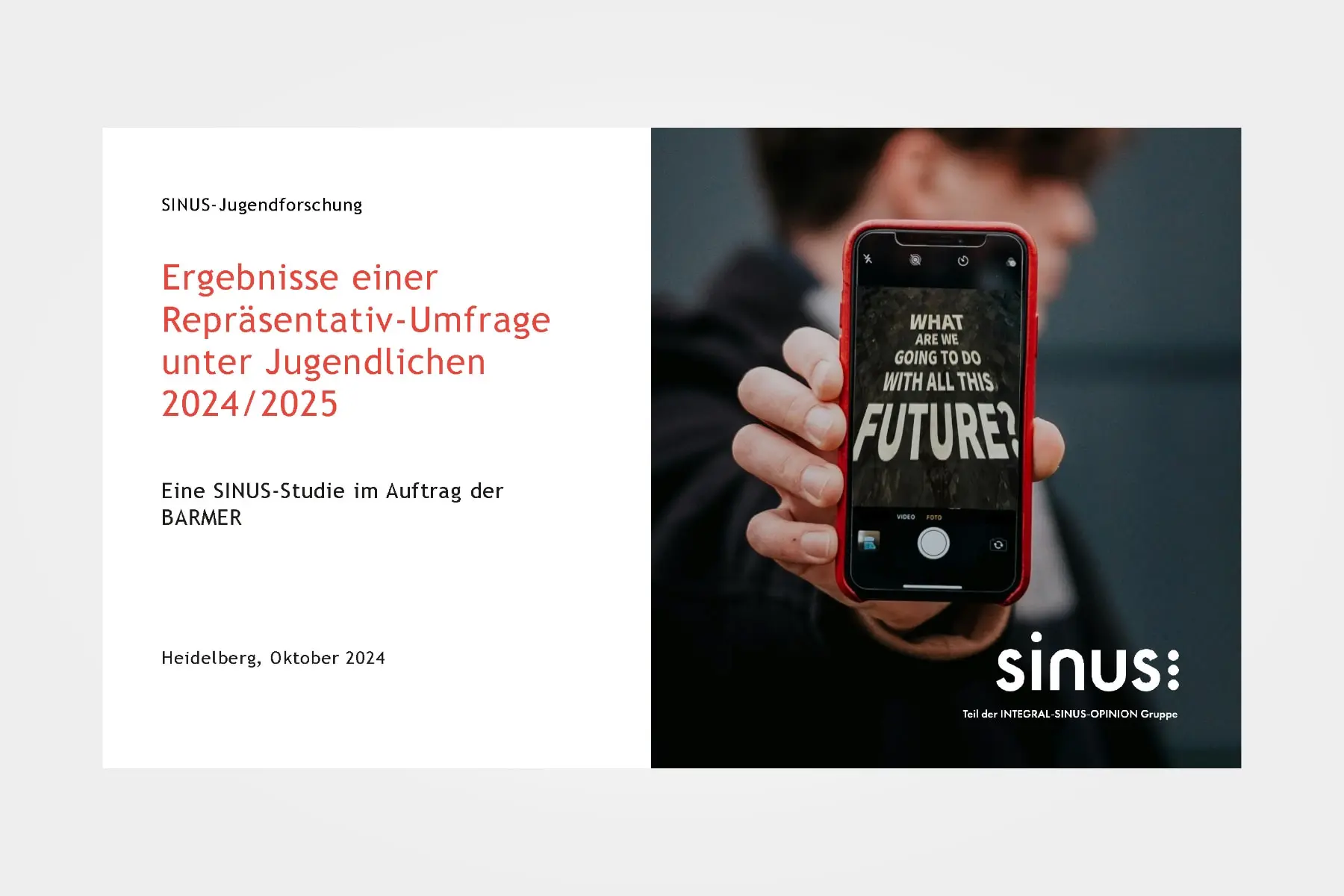
Youth study for BARMER on future optimism and life satisfaction, cyberbullying, climate change & health and artificial intelligence - including time comparison with 2022 and 2021 studies
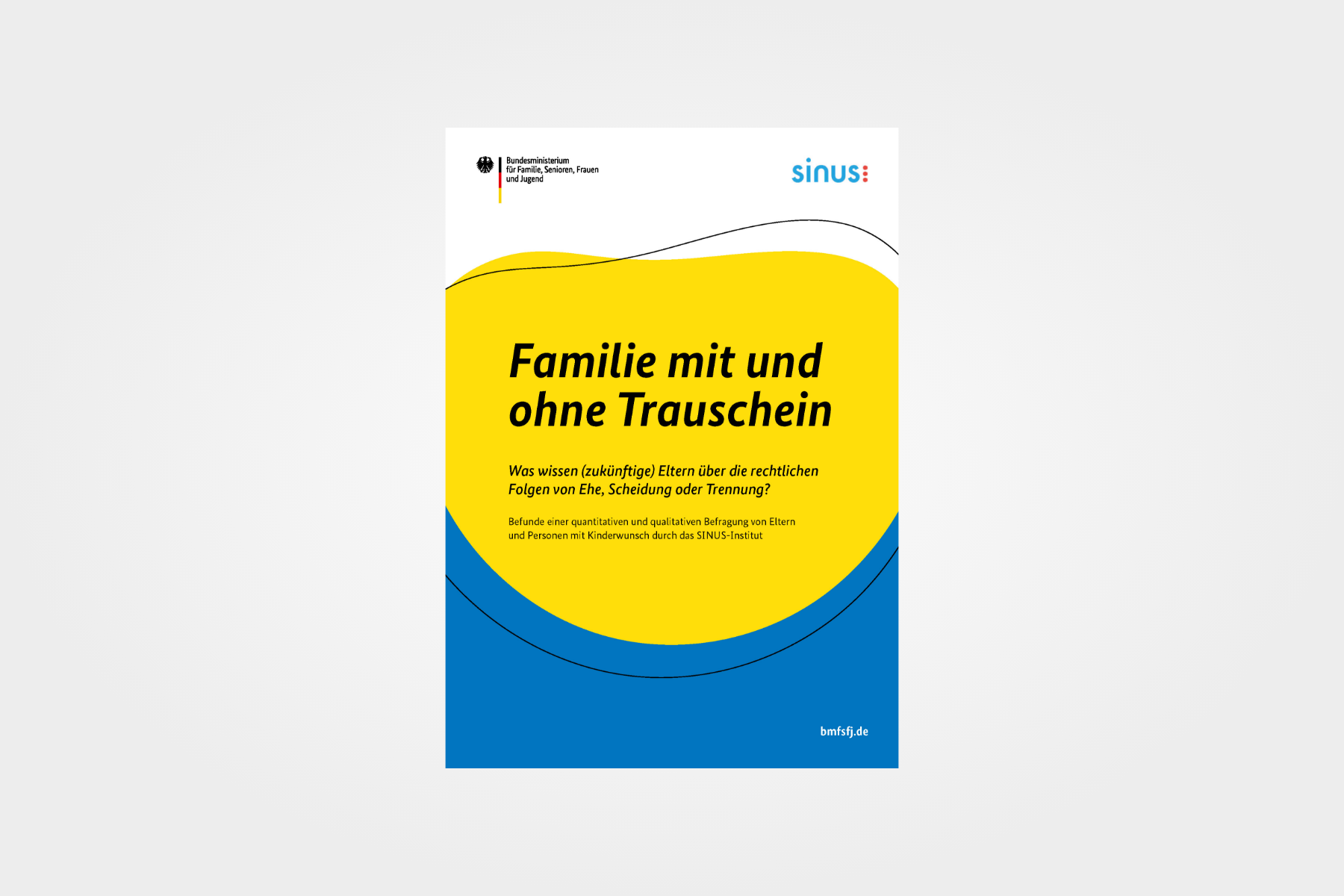
What do (future) parents know about the legal consequences of marriage, divorce or separation? Findings from a quantitative and qualitative survey of parents and people who want to have children, funded by the Federal Ministry for Family Affairs, Senior Citizens, Women and Youth (BMFSFJ).
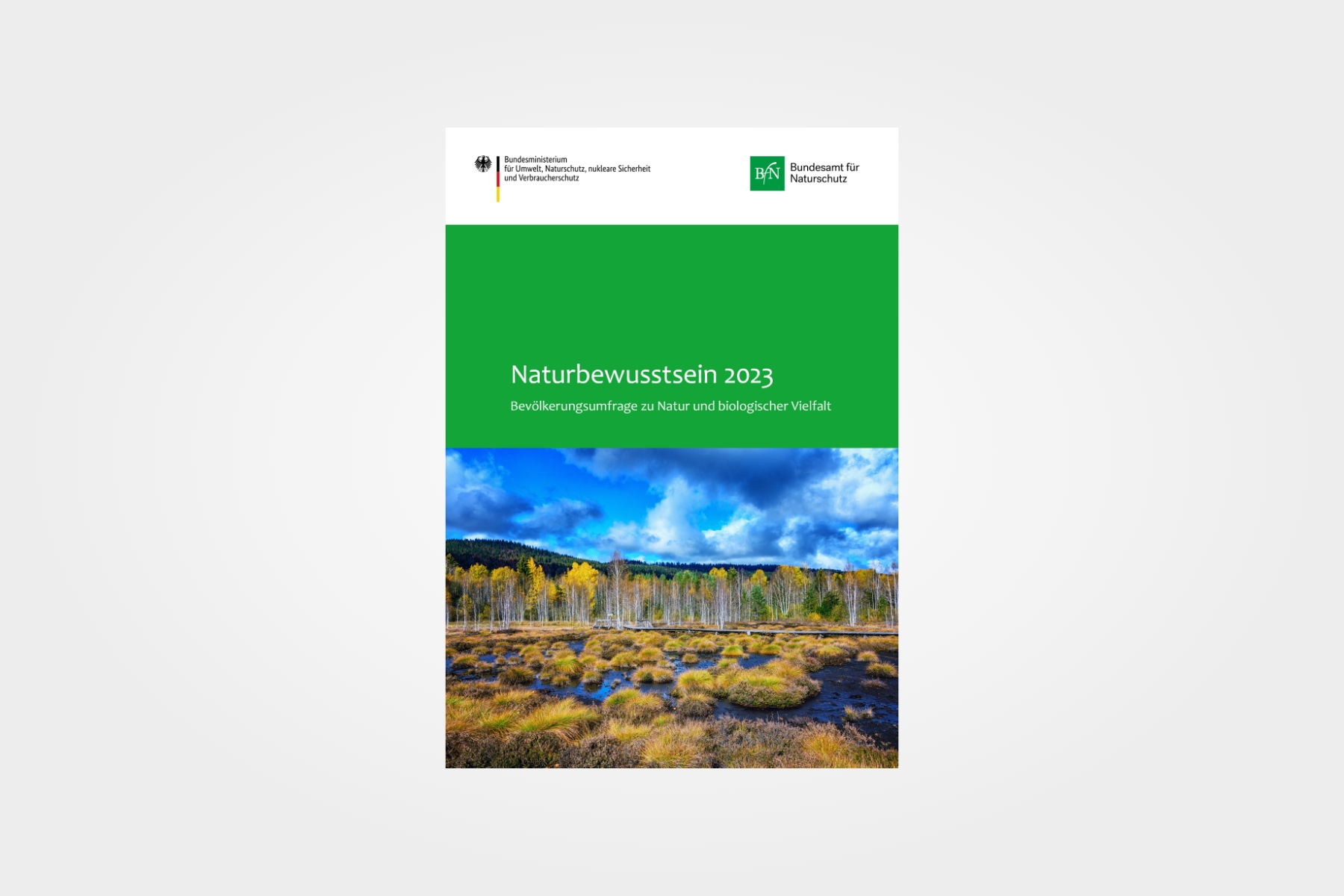
Every two years, the study series examines how people in Germany perceive nature, how they are committed to its conservation and how they assess current nature conservation policy issues. The 2023 study will focus on natural climate protection and the restoration of ecosystems.
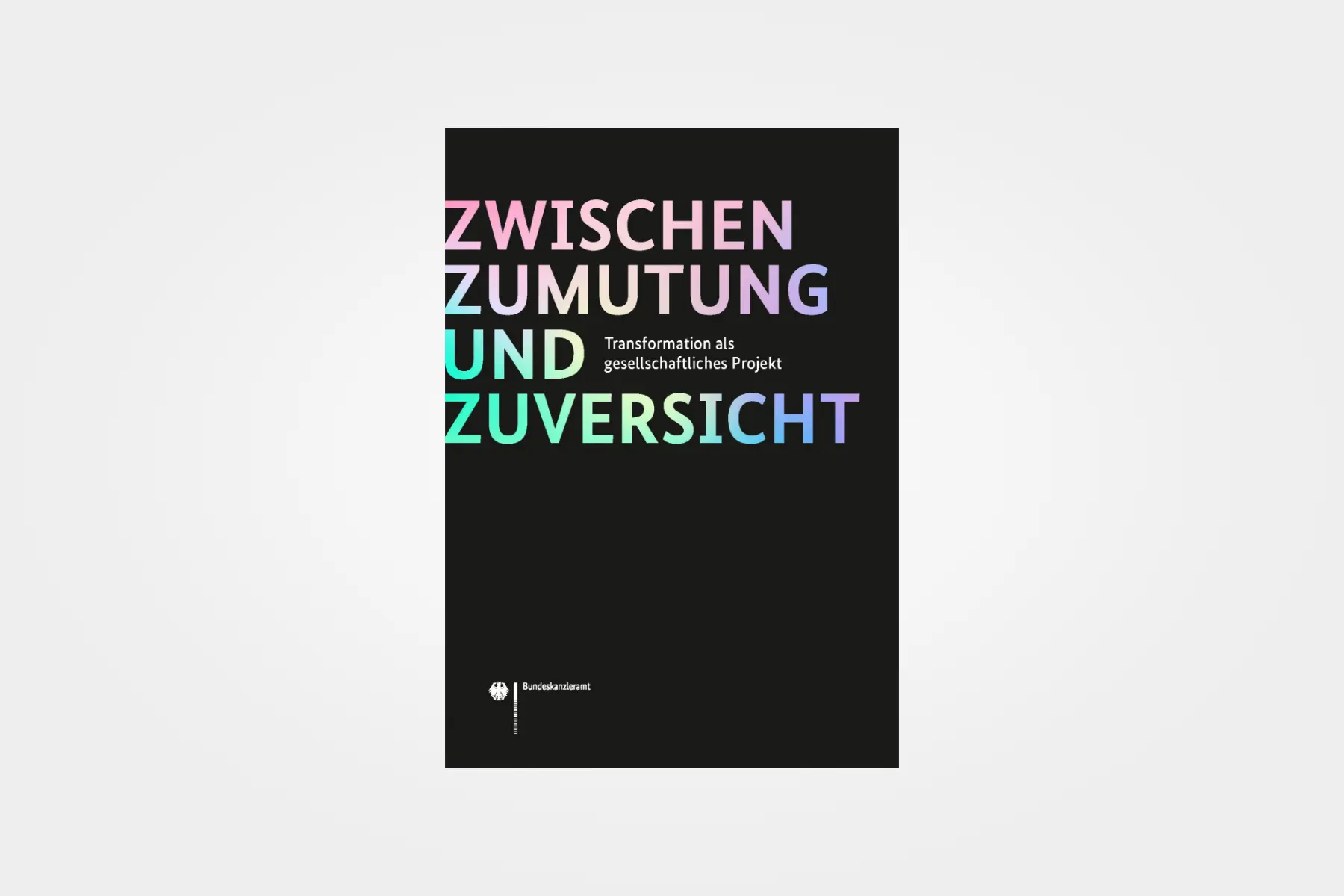
Germany is in the midst of a transition to a climate-neutral economy and society. How can this transformation succeed and what challenges does it pose? This discussion is now summarized in a conference volume published by the German Federal Chancellery. In her contribution, SINUS Managing Director Dr. Silke Borgstedt sheds light on milieu-specific perspectives on social change.
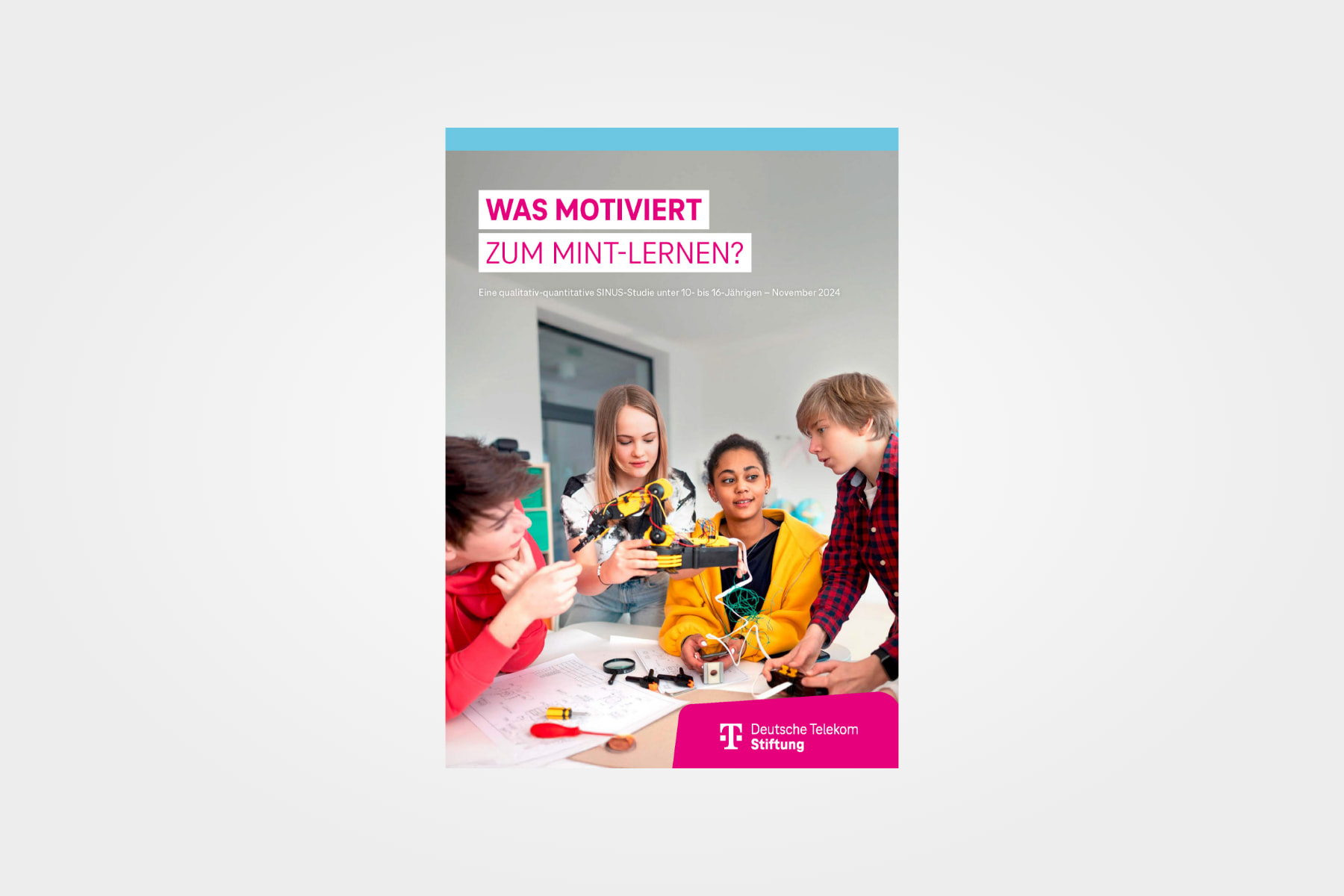
On behalf of the Deutsche Telekom Foundation, the SINUS Institute examined the attitudes of 10- to 16-year-old children and young people towards math and science subjects. The aim of the study was to identify factors that promote motivation to learn these subjects.
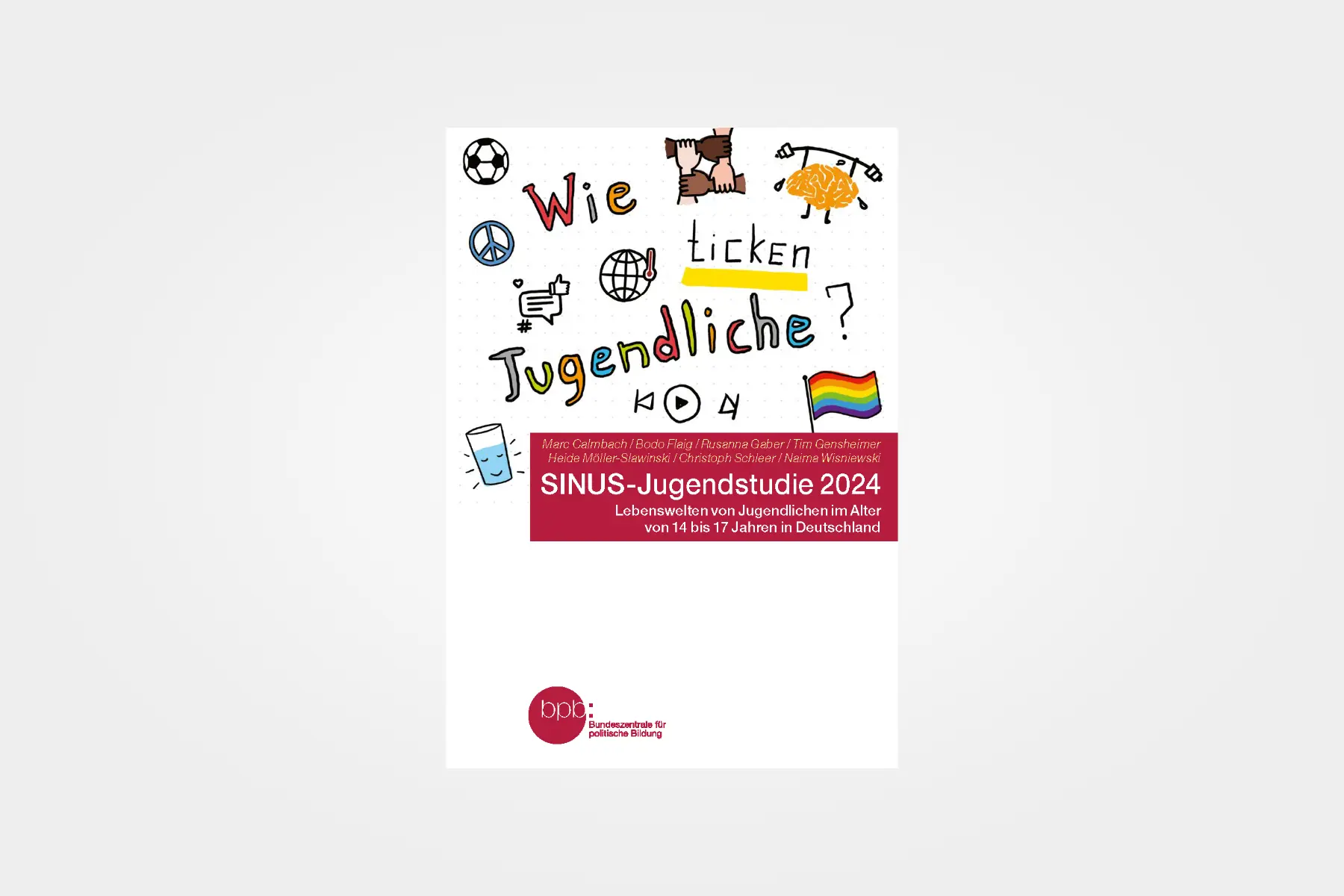
Lifeworlds of adolescents aged 14 to 17 in Germany
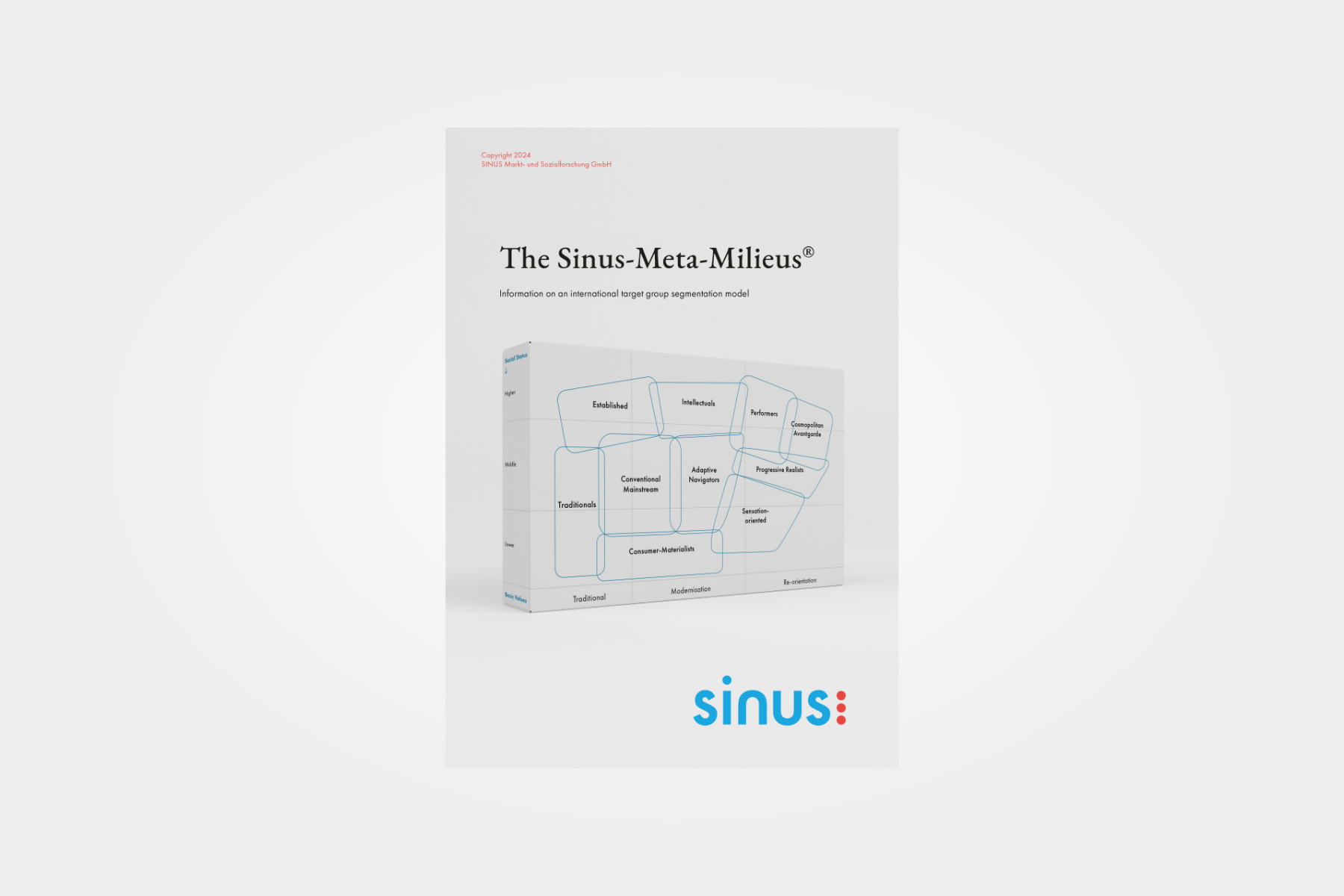
The information brochure explains what the meta-milieus are and shows how to work with this target group model.
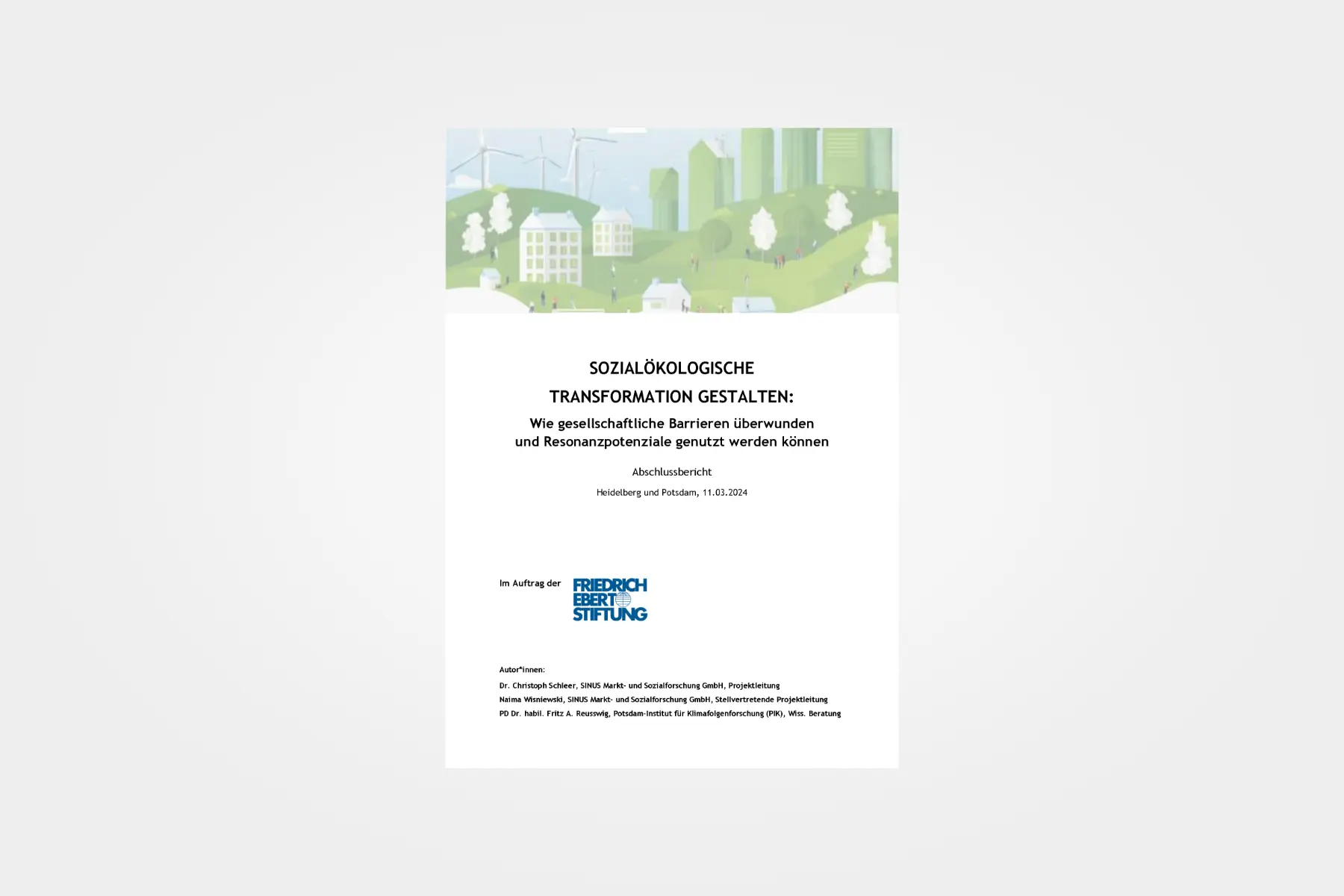
On behalf of the Friedrich-Ebert-Stiftung, SINUS-Institut surveyed over 22,000 citizens in 19 countries (in Europe and North America) to find out which perceptions, interests and fears are associated with the socio-ecological transformation, and used the international Sinus-Meta-Milieus to identify which social milieus are (particularly) receptive to climate policy measures or have a critical, cautious or negative attitude towards them.
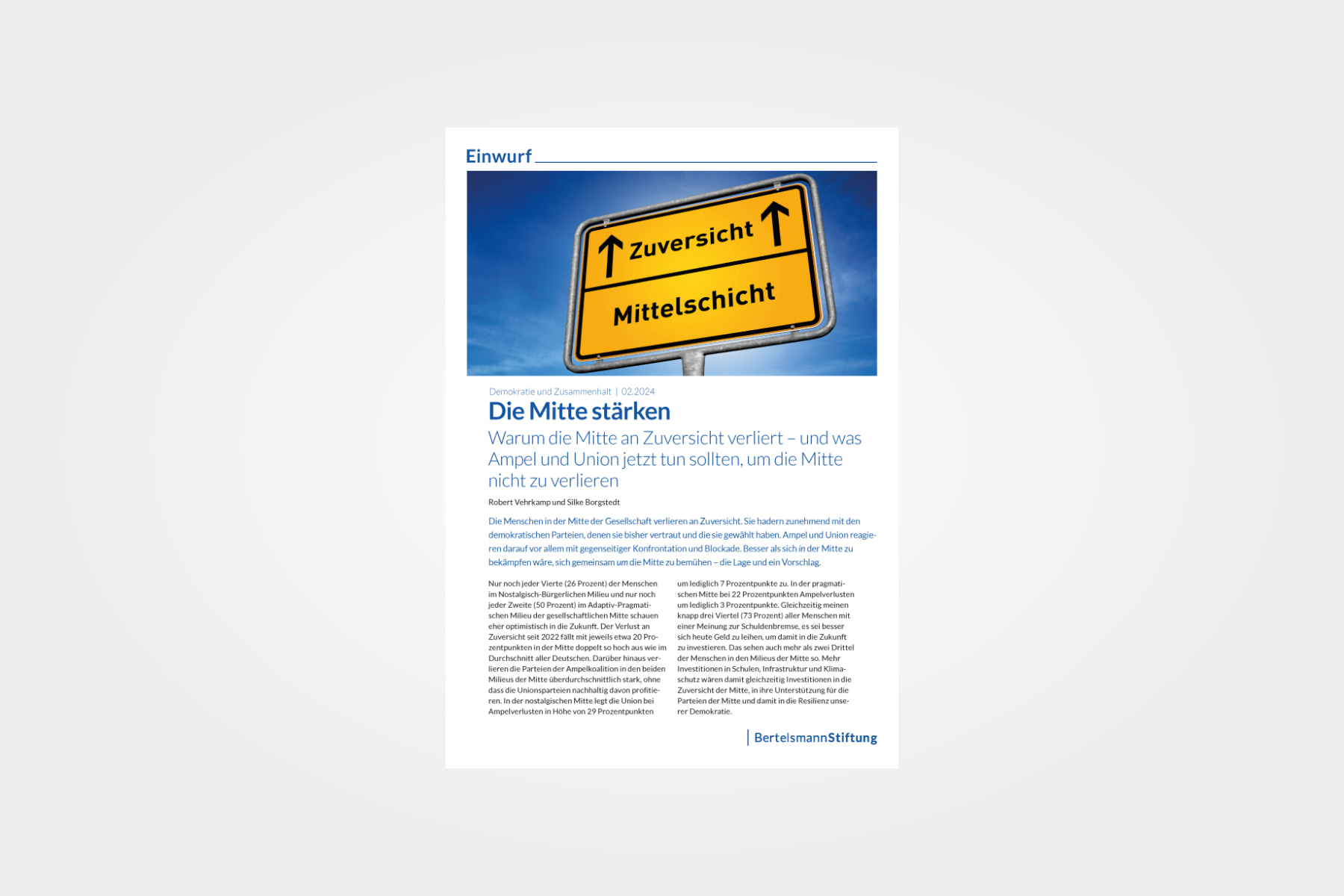
Analyse von Bertelsmann Stiftung und SINUS-Institut: Die Sinus-Milieus zeigen, warum die "Mitte der Gesellschaft" an Zuversicht verliert - und was die Ampelparteien und CDU/CSU jetzt tun sollten, um die Mitte nicht zu verlieren.
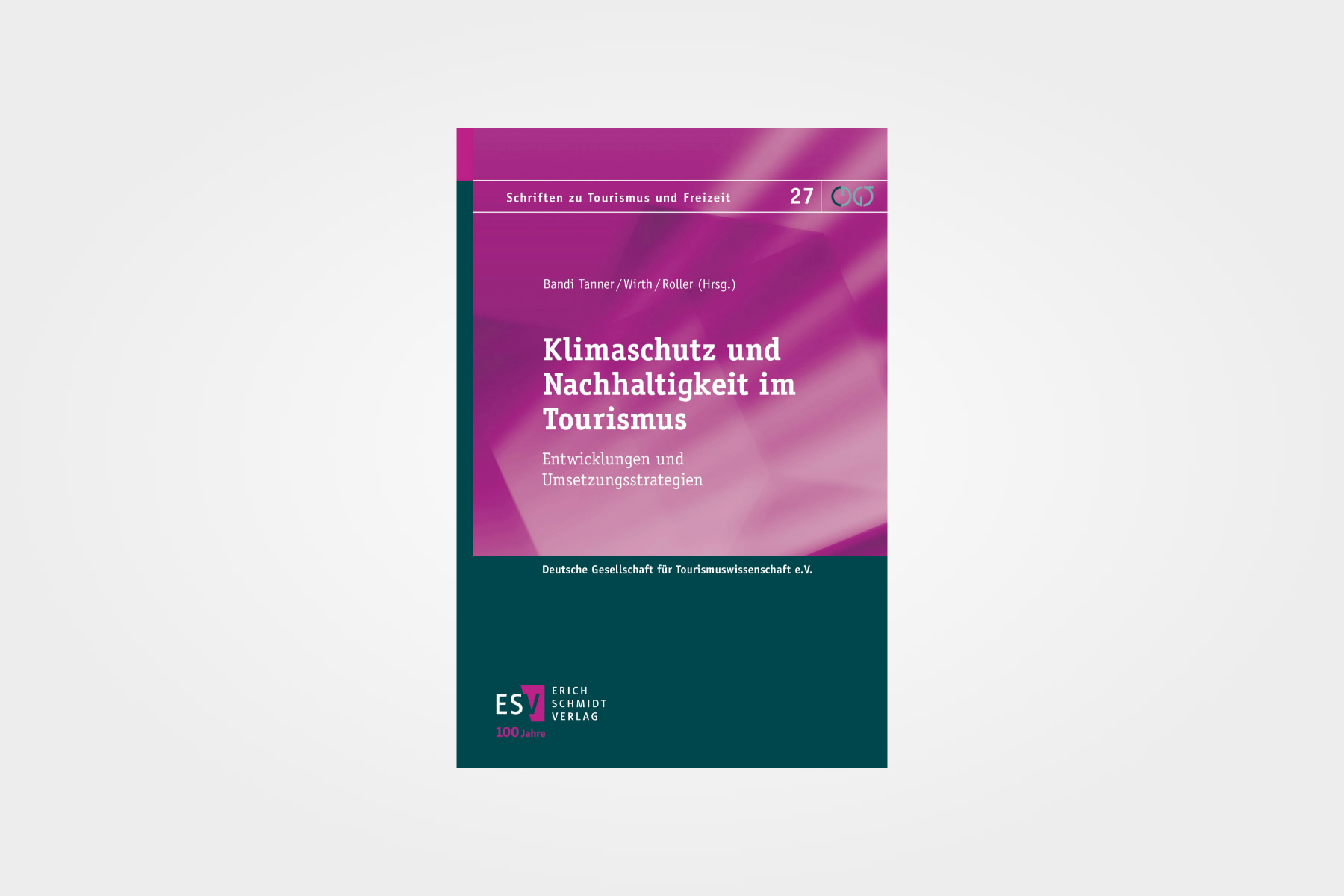
What added value does the combination of the target group typologies Sinus-Milieus and BeST Types provide?
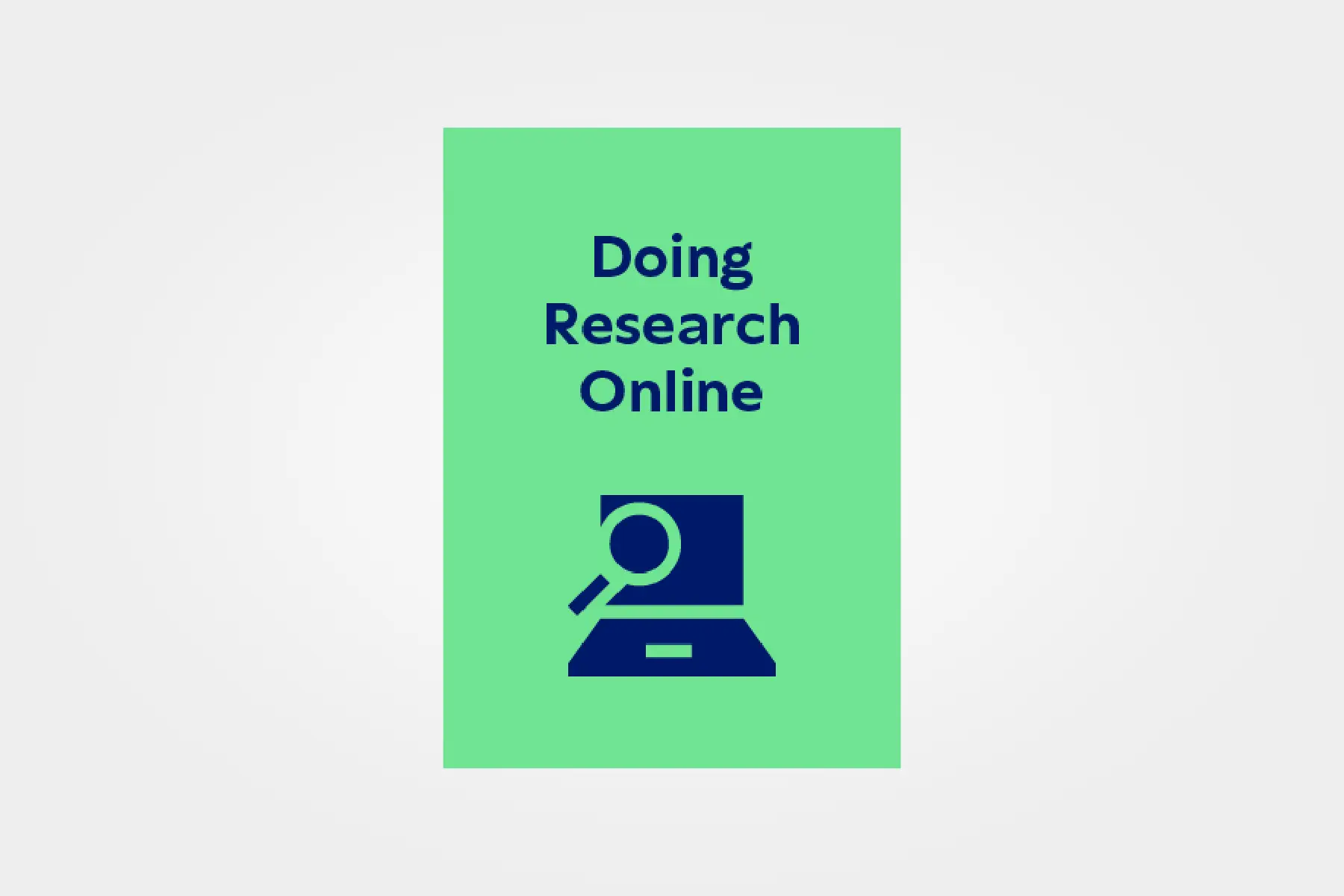
The paper is a "how-to" for good online moderation of focus groups. It is a practical guide for market and social researchers with hints and tips for planning online focus groups, moderation as well as technical and ethical issues arising from the online setting.
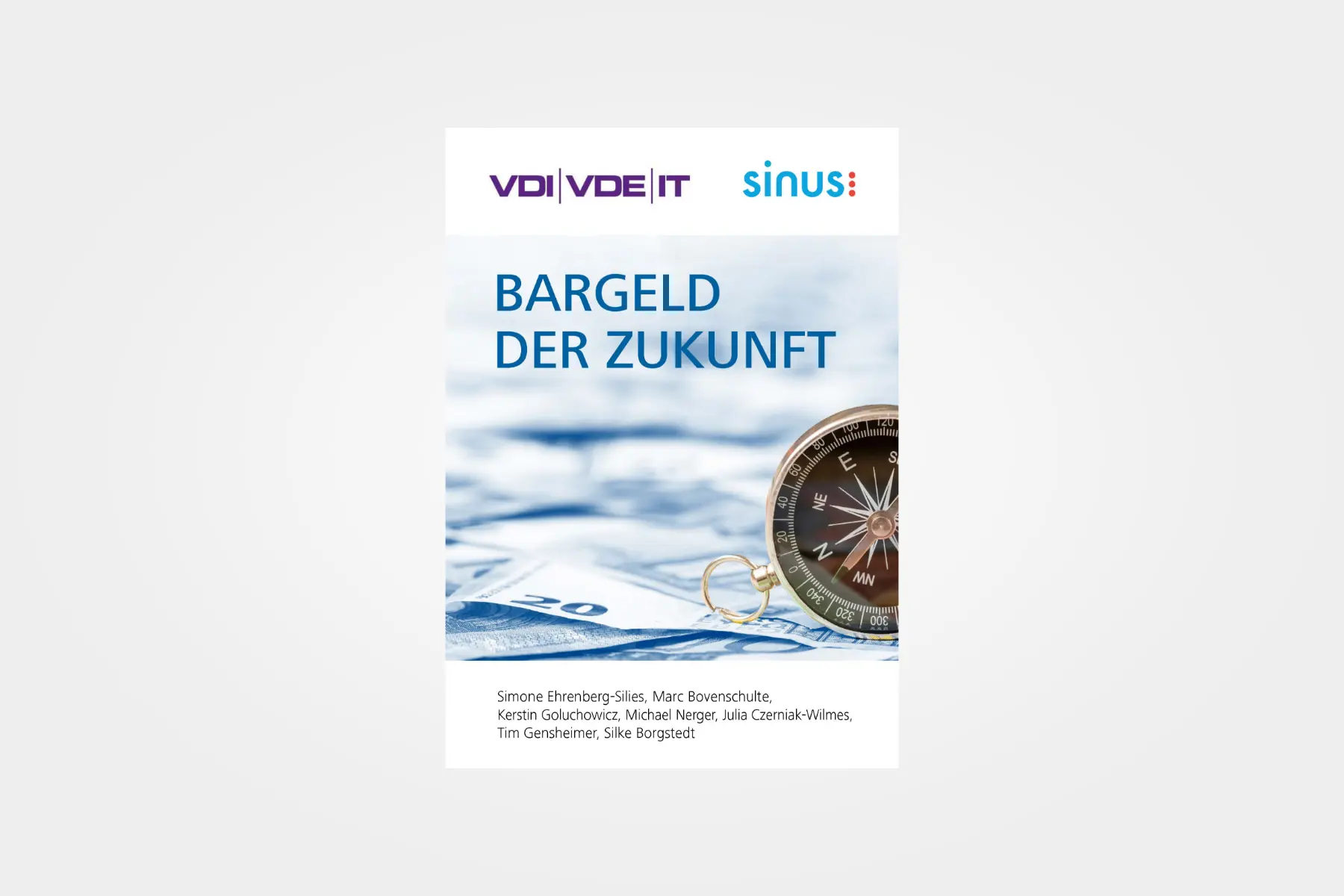
On behalf of the Deutsche Bundesbank, VDI/VDE Innovation + Technik, in collaboration with SINUS-Institut, conducted a study to identify three different scenarios for paying with cash in the future.
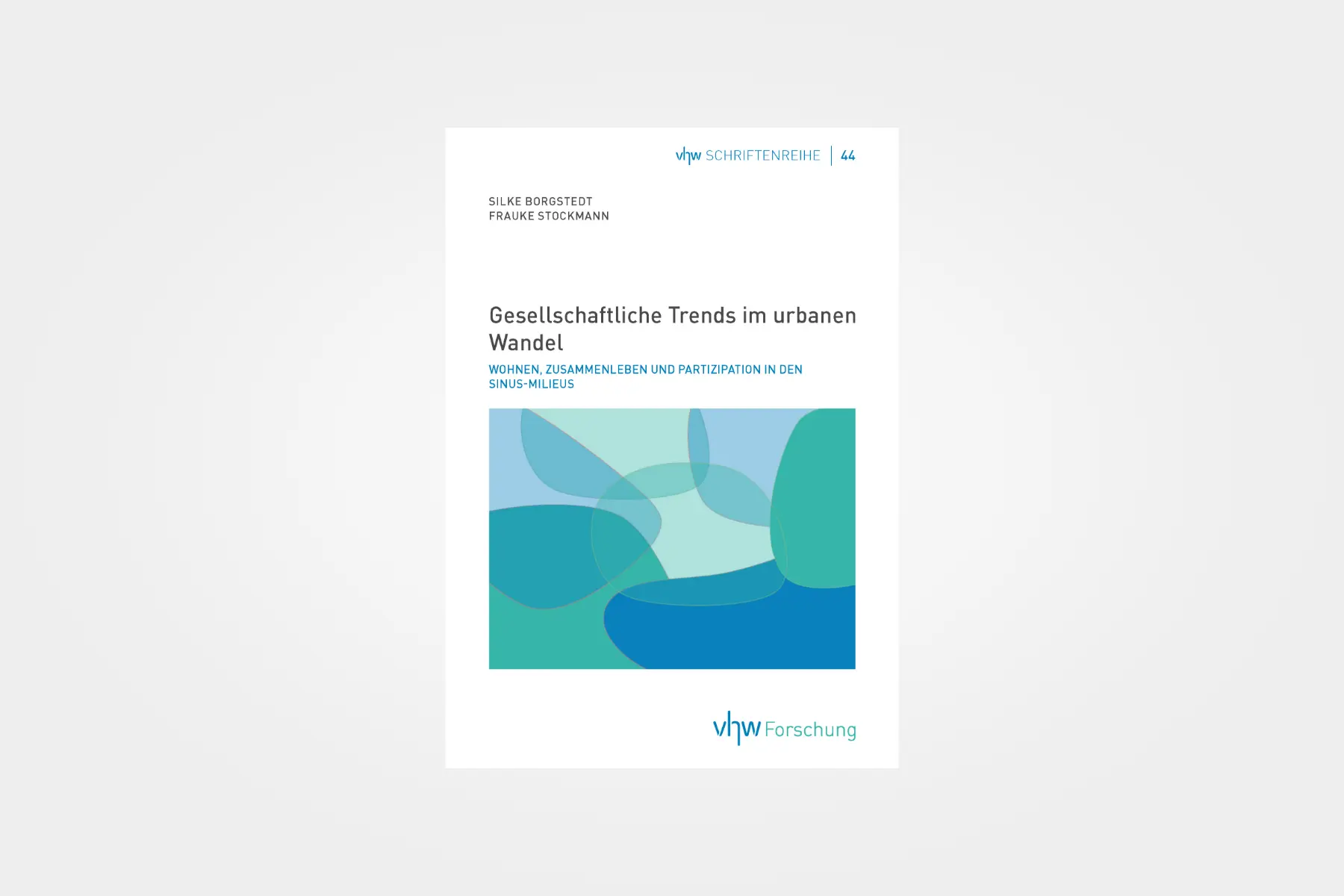
Representative study with Sinus-Milieus for vhw - Bundesverband für Wohnen und Stadtentwicklung e.V. on the topics of housing, participation, urban change and digitalization.
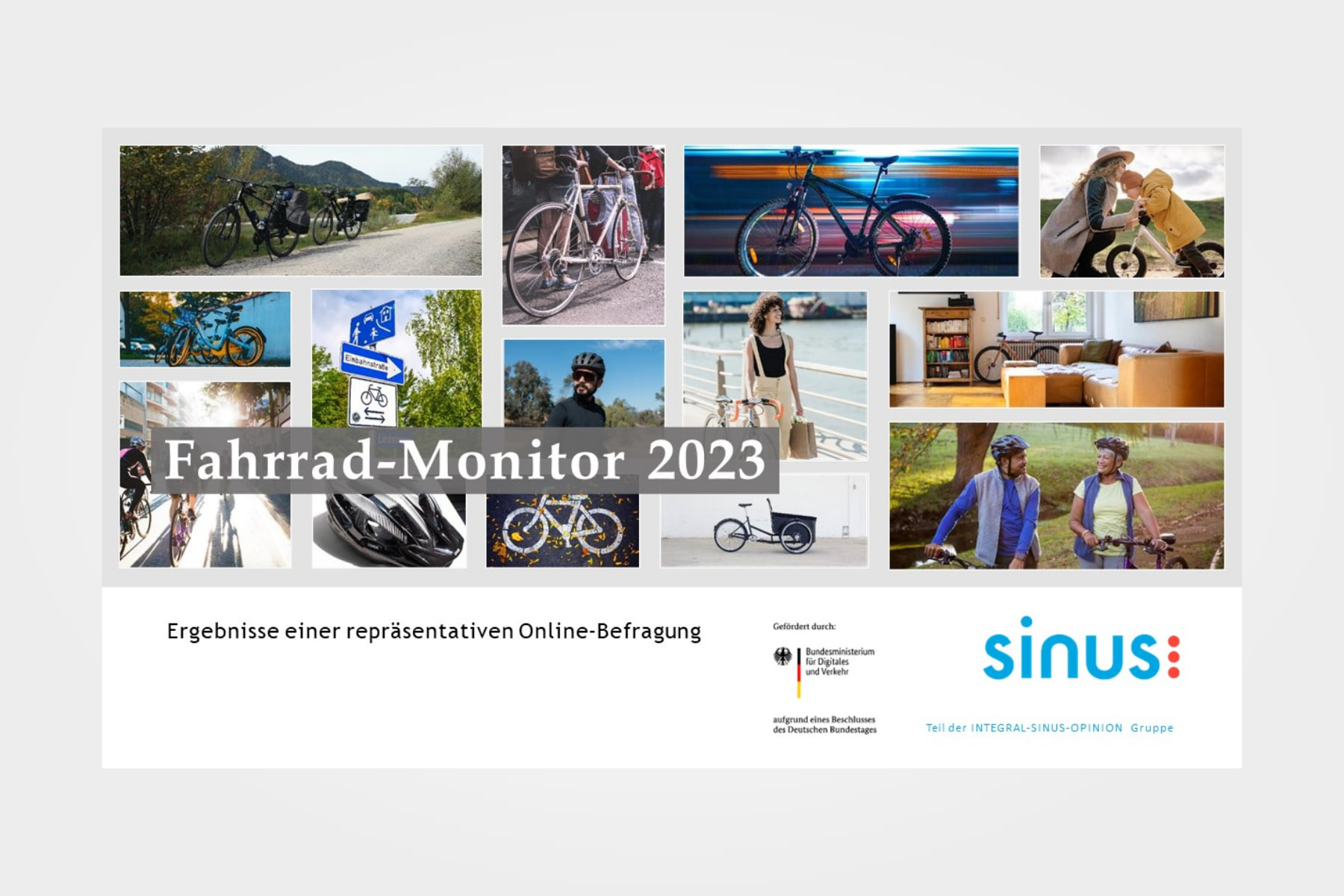
SINUS has been tracking the bicycle market for the BMVI since 2009 – nationwide and regionally
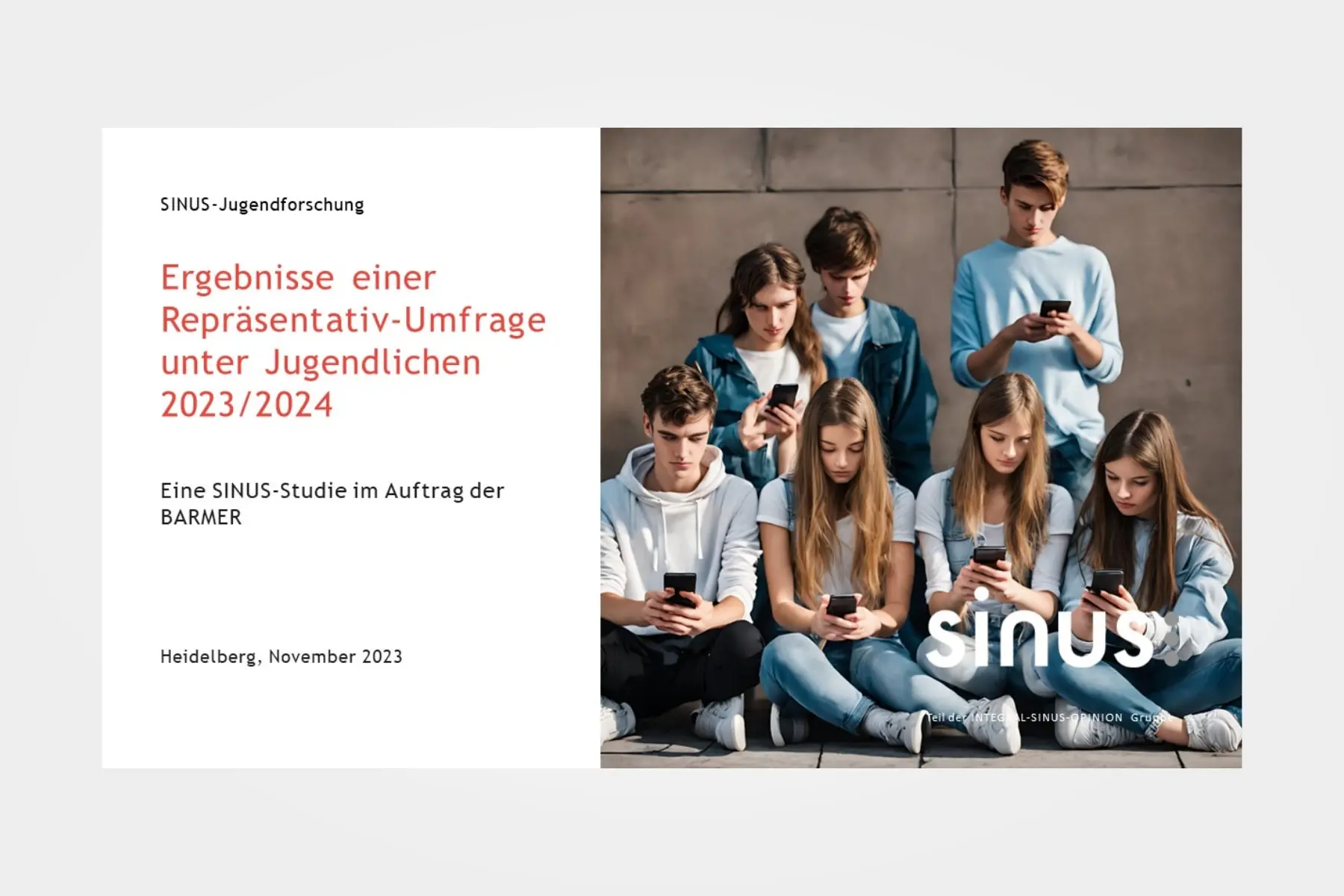
Youth study for BARMER on future optimism and life satisfaction, cyberbullying, climate change & health and artificial intelligence - including time comparison with 2022 and 2021 studies